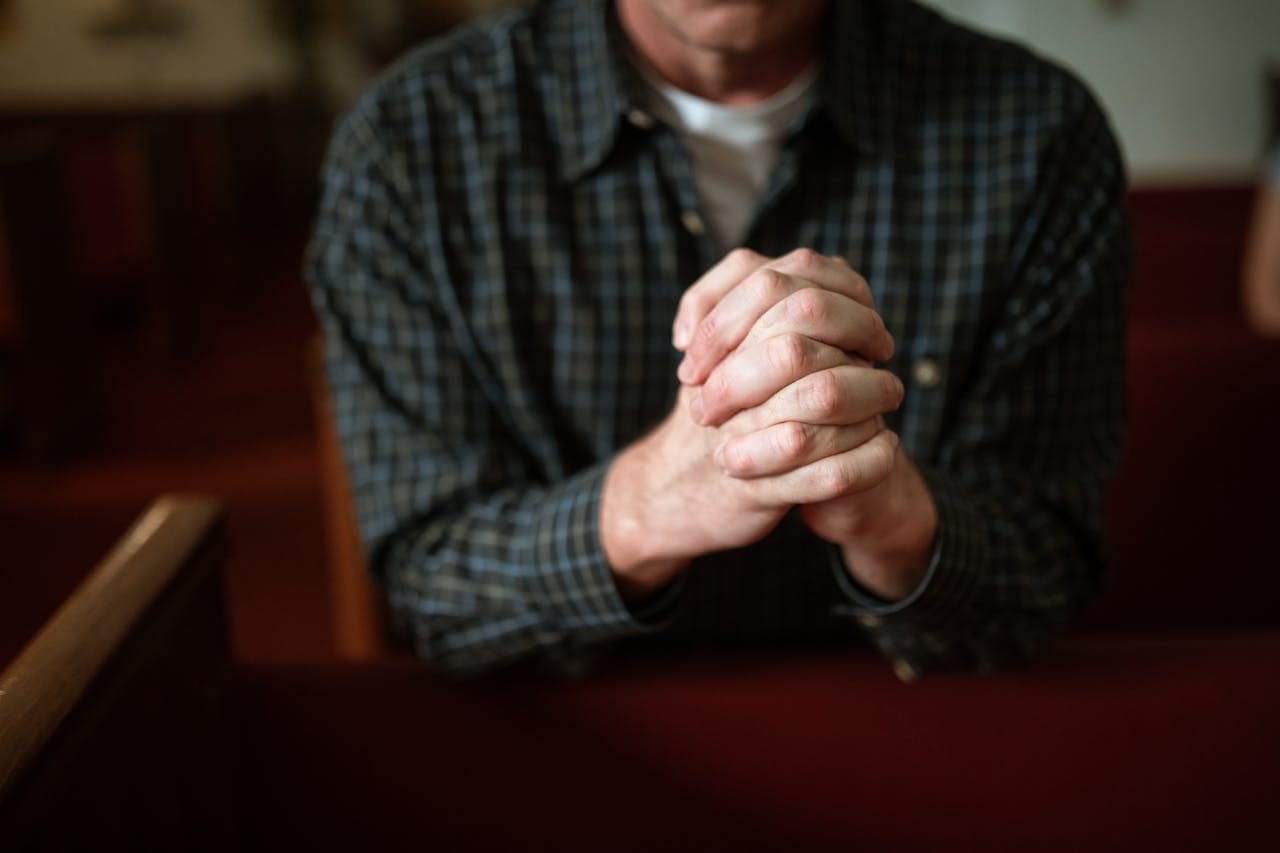How Does Religious Trauma Impact Faith Development?
Religious trauma refers to an individual’s response to religious teachings, practices, beliefs, or systems that overwhelm their ability to cope. This often causes distress and leaves lasting scars on an individual's mental, emotional, physical, and spiritual well-being, including their faith development. For those who have experienced religious trauma, their faith growth can be disrupted, altered, or even halted. Here we’ll explore the impact of religious trauma on faith development, particularly through the lens of Dr. James W. Fowler's Stages of Faith theory.
Understanding Religious Trauma
Religious trauma is a specific type of trauma resulting from intense or prolonged exposure to harmful religious doctrines, practices, or environments. It can be caused by authoritarian religious leaders, spiritual abuse, rigid beliefs, or internalized fear-based teachings. For many, it is rooted in experiences where questioning or deviating from the norms or beliefs of a religious group results in punishment, shaming, or exclusion.
Psychological and Emotional Impact
The psychological and emotional toll of religious trauma can be profound. You may struggle with anxiety, depression, a sense of worthlessness, and an intense fear of punishment by a higher power or leaders. You might also experience identity crises as you grapple with conflicting beliefs, values, and rejection from your community that once formed the core of your identity.
Spiritual Impact
Religious trauma can disrupt how you see yourself and the world around you. It can change your beliefs about relationships and your place in the world. It may lead to spiritual bypassing, which is when you use spiritual beliefs to avoid dealing with pain. Trauma can also impact how your beliefs about meaning and purpose change over time. When it interrupts your faith development or your “Stages of Faith,” it can cause you to become stuck, regress, or fixate on certain beliefs.
Stages of Faith
Dr. James W. Fowler’s theory, Stages of Faith, explores how faith evolves over one’s lifetime. During his time at Emory University as a professor in theology, Dr. Fowler was inspired in part by a personal connection with Dr. Lawrence Kohlberg, a psychologist at Harvard, who developed the famous stages of moral development. Dr. Fowler’s theory outlines a six-stage model (including stage 0) that describes how faith develops from childhood through adulthood. In this context, "faith" isn't strictly religious, nor does it only mean belief. Instead, faith represents how a person engages with and finds meaning in life. It describes actions you take during your life and includes an evolving system of images, values, and commitments that shape your journey. Dr. Fowler describes faith as a universal experience. He proposed that all people are driven by some fundamental form of faith.
The stages of faith include:
- Primal or Undifferentiated Faith (Birth to 2 years): This stage involves an infant's pre-language faith experiences when they develop a basic sense of trust and security (or mistrust) based on their relationships with caregivers. The quality of caregiving—whether consistent, loving, and nurturing or neglectful and inconsistent—plays a crucial role in shaping their initial trust in the world and the beginning of faith development.
- Intuitive-Projective Faith (Early Childhood): Faith at this stage is characterized by imagination and intuition. It is heavily influenced by the stories and images presented by adults.
- Mythic-Literal Faith (Middle Childhood): Here, faith becomes more concrete. Children understand religious stories and beliefs in a literal sense. They interpret metaphors and symbols as factual truths.
- Synthetic-Conventional Faith (Adolescence): In this stage, faith is often unexamined and conforms to the beliefs of the community. It’s about belonging and maintaining harmony within the group.
- Individuative-Reflective Faith (Young Adulthood): This stage involves a critical examination of one's beliefs, leading to a more personal and individualized faith.
- Conjunctive Faith (Mid-Life): Individuals begin to appreciate the complexity of faith. They embrace paradox and understand that truth can be multi-faceted.
- Universalizing Faith (Rare): The final stage is marked by an all-encompassing sense of compassion and justice. This often leads to selfless acts of love and service.
Evolving through these stages is crucial for holistic spiritual and personal development. A healthy progression enables individuals to develop a more nuanced and compassionate understanding of themselves, others, and the divine. However, religious trauma can significantly impact this growth.

The Impact of Religious Trauma on Each Stage of Faith
Stage 0: Primal or Undifferentiated Faith
Religious trauma can disrupt this stage by affecting an infant's basic sense of trust and security. If caregivers are dealing with their own religious trauma, their ability to provide consistent and nurturing care may be impacted, leading to an unstable emotional environment for the child. Additionally, a traumatic or fear-based religious environment can create stress that the infant absorbs, influencing their sense of safety. This can result in attachment issues, where the child may develop an insecure attachment due to the caregiver's inconsistency, further impacting their trust in the world. The child’s foundational worldview may become mistrustful or fearful, affecting their openness to future spiritual experiences and relationships.
Stage 1: Intuitive-Projective Faith
Children at this stage are highly impressionable, absorbing the fears, anxieties, and rigid teachings of their environment. If these early religious experiences are traumatic—such as exposure to frightening imagery of hell or an angry deity—it can instill a deep sense of fear and mistrust in the divine, shaping their spiritual outlook for years to come.
Stage 2: Mythic-Literal Faith
As children move into stage two, religious trauma can create discomfort and confusion surrounding their understanding of the world and relationships. Traumatic religious teachings, especially those that are rigid or punitive, can clash with a child's emerging sense of fairness and justice. For example, concepts around literal eternal damnation or strict moral codes may lead to internal conflict, resulting in anxiety or overly rigid adherence to religious rules as a means of coping.
Stage 3: Synthetic-Conventional Faith
During adolescence, individuals typically seek to conform to the beliefs of their religious community. However, if they have experienced religious trauma, this stage can become a period of deep internal struggle. The need to belong may conflict with unresolved trauma, leading them to suppress their doubts and fears in order to conform or conversely, completely reject the community’s beliefs and make a 180° turn in their belief system. This stage often determines whether an individual will begin to critically examine their faith or remain entrenched in a dogmatic belief system.
Stage 4: Individuative-Reflective Faith
For those with religious trauma, this stage can be particularly intense. As they begin to critically examine their beliefs and separate themselves from their religious upbringing, they may face painful memories and distress. However, it can also be a period of significant healing and growth, as they begin to reclaim their spirituality on their terms.
Stage 5: Conjunctive Faith
Religious trauma can make this stage difficult to reach. Those who have been hurt by rigid or exclusionary religious teachings may struggle with non-dualistic thinking—seeking truth by integrating differing belief systems, embracing the paradox and ambiguity inherent in faith, and appreciating the mysteries of reality. The trauma may lead to a black-and-white thinking pattern, making it hard to hold nuances of spirituality and faith. They may think that a belief must be all true or all false and that there is no gray area.
Stage 6: Universalizing Faith
Reaching this stage is rare, even for those who have not experienced religious trauma. For trauma survivors, it can be especially challenging. This stage is marked by a deep sense of compassion and a commitment to universal justice and love. Those who achieve it often do so by transforming their pain into a deep empathy for others. Fortunately, religious trauma, if processed and healed, can sometimes be the catalyst for reaching this stage, leading to a more profound and inclusive spirituality.
Implications for Therapy
Understanding the impact of religious trauma on faith development is crucial for therapists. By recognizing where a client is in Fowler’s stages of faith, mental health professionals can tailor their interventions to support the client’s spiritual and emotional healing. This might involve creating a safe space for clients to express their doubts and fears, helping them to examine their beliefs critically, or guiding them toward a more nuanced and compassionate understanding of faith and themselves.
When religious trauma disrupts an individual’s faith development, it can instill fear and mistrust in early childhood leading to internal conflict in adolescence and adulthood. However, with awareness, support, and appropriate therapeutic interventions, it is possible to heal from religious trauma and continue the journey of faith in a way that is both authentic and life-affirming.

Find Hope After Religious Trauma
Dr. David Zacharias helps religious trauma survivors reconnect with themselves, reclaim their lives, and heal at his Seattle-based private practice, Existential Psychiatry. For over two decades, Dr. Zacharias has provided holistic and patient-centered care to people from all walks of life and spiritual beliefs. If you're searching for supportive treatment to help you heal from religious trauma, please reach out for a free consultation today.
Written by Existential Psychiatry Staff
Sources
- Fowler, James W. Stages of Faith: The Psychology of Human Development and the Quest for Meaning. Revised and updated edition. New York: HarperOne, 1995.
- Perry, Sarah. "Religious/Spiritual Abuse, Meaning-Making, and Posttraumatic Growth" Religions, July, 2024. Accessed August 12, 2024.